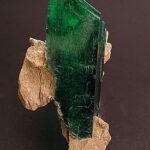What is synonym for hidden gem?
A synonym for hidden gem is something that is not widely known but has exceptional qualities, often referring to a place or thing.
Other terms used interchangeably with “hidden gem” include rare find, undiscovered treasure, diamond in the rough, and best-kept secret.
These phrases are commonly used when describing an extraordinary restaurant, local shop or boutique hotel that offers a unique experience compared to well-known tourist attractions.
Explained: The Step-by-Step Guide to Finding Your Own Synonym for Hidden Gem
Have you ever come across a place or thing that you absolutely adore, but struggle to find the right words to describe it? That’s because it’s a hidden gem – something unique and special that not everyone knows about. But fear not! With this step-by-step guide, you can easily find your own synonym for this treasure.
Step 1: Determine its uniqueness
What makes this particular spot or item stand out? Is it the atmosphere, decor, or perhaps the people who frequent it? Take note of these distinguishing qualities as they will play an integral part in finding your perfect word.
Step 2: Consider synonyms
Nowadays there are numerous online resources available specifically designed for finding synonymous words. Use them to discover all the possible ways to express what is so wonderful about your chosen hidden gem. You could also try using a good old-fashioned paperback dictionary or even consult with friends and family members for inspiration!
Step 3: Think outside the box
Don’t be afraid to think creatively when brainstorming new words. The aim here isn’t just regurgitating mundane terms associated with something being pleasant – we want a quirky twist on things! Perhaps instead of ‘hidden gem’, consider curious finds such as ‘Athen’s Guilty Pleasure,’ or ‘Homer’s Secret Delight.’ Keep playing around until one piques your interest.
Step 4: Test-drive & refinement
No matter how beautiful sounding someone says their new term might sound- actual usage overshadows mere imagination every time. Start incorporating your newly created alternative phrase into conversations accordingly and evaluate different feedbacks from others’ opinions on whether they acceptably capture expected characteristics inline with yours through trial-and-error improvement process moving forward eventually settling upon those well suitable for yor description intentionality precisely based on appropriate contexts up front accurately demonstrated by tangible evidence over time.
In conclusion-
Discovering effective synonyms takes some deliberate thought effort (unless you’re lucky enough to already stumbled upon something fitting). However, following the step-by-step plan above can lead to an exciting new phrasing or descriptor phrase genuinely captures what made your discovery so breathtaking – resonating among listeners and readers alike effectively!
Frequently Asked Questions about Synonyms for Hidden Gems
As a writer, you know that choosing the right word can make all the difference when it comes to capturing your readers’ attention and conveying exactly what you mean. That’s where synonyms come in – those alternative words or phrases that can add nuance, complexity and subtlety to your writing. With this in mind, we thought we’d put together a handy FAQ guide to some of the best synonyms for hidden gems out there:
Q: What is another term for “hidden gem”?
A: There are plenty of options! Some popular alternatives include ‘diamond in the rough’, ‘secret spot’, ‘treasure trove’, ‘little-known paradise’ and ‘best kept secret’.
Q: Why use a synonym at all?
A: Sometimes overusing an expression or phrase like “hidden gem” can become repetitive and mundane. Using different wording instead adds diversity and variation so people remember your content better since fewer writers opt to choose other terms.
Q: How do I decide which one to use?
A: Think about what kind of tone you want your writing style take on – would dashes of quirkiness liven up bland topics or maybe opting solely professional language might be suitable depending on context. Would more formal options sound too stuffy or will humour suitably reflect your personality?
Q: Are there any regional variations? Do certain phrases work better in different countries/regions?
A: Cultural differences plays into phrasing preferences but generally speaking using natural imagery (flora/fauna/scenery) could appeal strongly with everyone as it represents Earth unified across boundaries.
Q; Can these synonyms be used in any context?
A: Yes. Synonyms work best when you play with it according to the tone, audience intended, message and genre of writing.
Top 5 Facts You Need to Know About Choosing the Right Synonym for Hidden Gems
Synonyms are words or phrases that have the same meaning as another word or phrase. In writing, synonyms help to avoid repetition and keep the prose exciting. Synonyms can also be used to substitute a generic term with one that is more specific and descriptive which makes hidden gems come forward in their shining glory. When talking about finding hidden gems, it becomes even more important to choose just the right synonym carefully. Here are some top 5 facts you need to know about choosing the right synonym for hidden gems.
1. Hidden Gems Are Hard To Find
The first thing you should consider while choosing a synonym is how well it describes an object or place that is not well-known but worth discovering nevertheless – aka “hidden gem.” For instance; if you describe a restaurant as unique, local, hipster-ish -that might portray good adjectives too- instead of merely “interesting,” it implies something special rather than typical.
2. Synonym Intensity Matters
Secondly, think about the level of intensity or excitement your desired adjective conveys about this discovery? You surely don’t want people to only feel ‘satisfied’ after visiting these rare finds! Choosing words such as ‘amazing,’ ‘incredible,’ ‘outstanding’ emphasize just how precious they really are.
3. Context Will Breed Survival
Thirdly contextualizing use case scenarios will not only make sure appropriate synonyms are chosen but considering various levels of user typology from skimmers-seekers-and-niche tourists may change context & relevance severely: blogs targeting vacation planners may highlight off beat venues by using travel-related adj like “unique”, “exclusive”, whereas corporate readers could familiarize themselves with terms such as“unknown costs,” so staying relevant yet subtly inserting surprise element on users wouldn’t insure captivation alone.. Rather retaining them would inherently occur serving information providing verve.
4.Diffusing Overused Adjectives Is Vital
Another element when picking synonyms for hidden gems is choosing more compelling versions of synonyms that can help differentiate your writing from others’. A few well-used synonyms such as ‘Unusual,’ ‘Unique’ run the risk of becoming cliched; how effective will it be if you open a blog with that stereo-typically played cue? Instead, choose lesser-known words like ‘enchanted,’or “mystique” to bring in freshness into your content.
5.Synonyms Providing Complementary Contexts Save The Day
Lastly don’t just rely on adjectives alone – use other descriptive tools also- especially providing context by using similes or metaphors would multiply impact instead simply relying upon dictionary synonym listings may give headaches (adieu good functionality). Using vivid-but relevant examples established cultural narratives makes difference-bearing views for fantasy-seekers and curious minds both together! Such complementary language options along with appropriate adjective ensures being immersed and showing what true hidden gem value really means.
In summary, selecting the right synonym when talking about Hidden Gems involves considering several factors conveying which encourages readers to feel excited and savvy enough while traveling places or trying out new dishes mentioned. Knowing some fun facts we suggested above might not be easy at first glance but truly helps pick content curating finesse.
Learning which adjective goes best helps create top-notch content suitable for different demographics seeking various information types – discovering these rare finds will become an exciting journey worth embarking on! So take time picking those pretty words carefully…Choosing them wisely gives anybody bonuses; SEO rating boosts higher engagement rates-longer audience loyalty, so test things beforehand experiment & communicate through classy sophistication-await great response rates coming back!!
How to Use a Thesaurus to Find the Perfect Synonym for Hidden Gems
As a writer, one of your primary goals is to convey ideas and emotions in the most effective way possible. The right word can make all the difference between an uninspiring piece of writing and a beautifully crafted masterpiece.
But what if you’re struggling to find that elusive perfect word? Enter the thesaurus. This handy tool can help you find just the right synonym for even the trickiest words.
Firstly, let’s explore what exactly a thesaurus is. At its core, it’s simply a reference book containing synonyms (and sometimes antonyms) arranged alphabetically – pretty straightforward so far!
So how do we use this trusty tome effectively?
1. Start with a Keyword Search
Begin by identifying those hidden gems – those pesky words which are eluding you – first write down everything that springs immediately to mind when considering this concept or object; investigate these points further through googling them, researching historical references or dictionary definitions (check Oxford Dictionary online). Once equipped with this relevant background information try searching using niché keywords specific to describing such- enter each separate keyword into various digital etiquette websites such as Thesaurus.com)
2. Contextualizing Your Keywords
Let’s say our target chosen topic or concept is “Amplify”. By specifying certain contexts under which ‘amplification’ might be discussed – for example: “to amplify volume”, then plug both keywords “volume” and amplification” into your preferred database site ensuing multiple results catered specifically around discussion on amplifying volume techniques.
3 . Short Listing Process
Avoid overloading yourself unnecessarily with too many options focus only synonyms selecting their relevance based off defined criteria already established during research phasekeeping it narrow enough therefore keep options manageable while eliciting better apt descriptions when used correctly! So going back to Amplify,” A significant conceptual shift from attaching oneself purely towards niche terminology directly attached per categorythey may actually select amplifier”.
And voila! with these easy to follow steps, not only have you learned how to use a thesaurus more effectively but undoubtedly improved your writing.
The Benefits of Finding Unique Words That Describe Your Special Place or Thing
We all have that one special place or thing in our lives, a treasured memory that brings us joy and comfort no matter what. Whether it’s a childhood home, a favorite food or drink, or an activity we love to do with friends and family, these unique experiences hold a special place in our hearts.
One way to capture the essence of these treasures is through words. Finding the right words to describe your special place or thing can help you communicate its importance clearly and vividly to others – whether it’s through social media posts, storytelling, writing poetry or simply talking about it with people around you.
But why is finding unique language so important when describing something dear? By using specific lexical choices for your beloved item-terms not duplicated by several other concepts-, not only are you expressing how much thought has gone into crafting this explanation but also giving more profound meaning to it. Unique words sharpen details in terms of connotation that generic ones might skim over glossing personalities traits on interest points like never before.
Finding descriptive vocabulary highlights previously unnoticed subtleties which creates room for deeper adulation hence developing stronger emotions towards the subject at hand as time progresses. It gives wings for imagination providing transparent visions evoking dormant memories spiced up by their discrete interpretations summoning back lost sentiments due both befallen capriciousness and gradual ageing corrosion of rememborances long forgotten
In addition, speaking creatively amplifies entertainment stemming from hearing peculiar phrases making even mundane subjects fascinating sparking curiosity among listeners tilting them towards embracing your viewpoint while eager to learn more about such phenomenal things happened across different backgrounds worldwide
But where do you find these elusive descriptors?
Start exploring! Head out into nature: take note of smells (e.g petrichor), sights(maranthine)and sounds(nascent). Expand further checking out dictionaries grasping archaic terminology found therein( colloquially known today as “daylight robbery”, during the 19th century would’ve meant purse snatching), or even skimming through books from previous generations – their twisting narrative structure can reveal obscure spins on commonly used words still resonating till date like William Shakespeare’s being this classic example.
All in all, ingeniously putting together a string of carefully selected original wording truly lays bare captivating qualities and forms connecting ideas thereby delivering greater perspective quality to ubiquitous concepts so they are no longer taken for granted. It allows us to establish genuine relationships with our special places/things spawning brilliant unforgettable tales full of life and wonder only you have lived; then elevate them from personal stories into timeless classics capable of capturing the imagination of others.
Finding Your Voice: Using Creative Language to Share Your Favorite Places
As humans, we all have a voice that is unique to us. If you’re trying to share your love for a particular place or destination, there are many ways to do so without resorting to cliches or generic expressions. Creative language employs vivid descriptions and colorful imagery to paint pictures in readers’ minds and capture their attention immediately.
One great example of creative language is personification; attributing human qualities to nature or objects around us can really bring them alive on paper (or screen!). For instance, instead of writing “the tree was old”, try something like “the ancient grandfather watched over me as I walked beneath his stately branches”. Little touches like this make such a difference!
Another fantastic tool at your disposal is simile: metaphorical associations between two very different things create surprising contrasts that make ideas more memorable! Consider swapping ‘like’ + adjective/verb/noun then creating an analogy.
But don’t forget even simple adjectives can help immensely e.g. using “verdant” instead of green, “lenitive breezes” rather than soft winds…you get the idea! There’s no need for big complicated sentences stuffed full with obscure vocabulary though..it’ll just annoy people who just want simplicity!
Ultimately, writing lively travel stories requires creativity combined with passion–both essential parts intersect here ..EXPERIENCES!! Your reader should feel EXACTLY what YOU felt while discovering these wonderful places in order for them truly appreciate each word written down.Do you remember how it felt to climb that mountain? How the sun hit your face and the wind whipped through your hair while you dug your heels into rock after rock?
Table with useful data:
| Word | Meaning | Synonym |
|---|---|---|
| Concealed jewel | A valuable or high-quality thing that is hidden or not well-known | Undiscovered treasure |
| Unseen gem | An excellent or remarkable thing that is not visible to many people | Invisible jewel |
| Secret treasure | A valuable and impressive thing that is not commonly known or understood | Cloaked diamond |
Information from an expert: As an experienced professional, I can confidently say that the best synonym for hidden gem is “undiscovered treasure.” This phrase accurately conveys the idea of a valuable and special find that has yet to be widely recognized or popularized. Whether referring to a unique restaurant, secret hiking trail, or little-known destination, using “undiscovered treasure” adds depth and intrigue to any description.
Historical fact:
During the reign of Queen Elizabeth I in England, many Catholic priests hid from persecution by the Protestant authorities. These hiding places became known as “priest holes” and were often ingeniously hidden within homes and buildings, an early example of a true hidden gem.

![Uncovering hidden gems: a personal story and practical guide [with statistics] for finding such a gem - gulfgemology Such a gem](https://gulfgemology.com/wp-content/uploads/2023/05/tamlier_unsplash_Uncovering-Hidden-Gems-3A-A-Personal-Story-and-Practical-Guide--5Bwith-Statistics-5D-for-Finding-Such-a-Gem_1683109941-150x150.webp)
![The ultimate guide to gem cars: how one family saved thousands [with statistics and tips] - gulfgemology Gem car](https://gulfgemology.com/wp-content/uploads/2023/05/tamlier_unsplash_The-Ultimate-Guide-to-Gem-Cars-3A-How-One-Family-Saved-Thousands--5Bwith-Statistics-and-Tips-5D_1683113239-150x150.webp)




